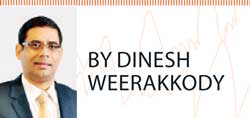17 Jan 2018 - {{hitsCtrl.values.hits}}

 Our world looks in vain for strong leadership. Politicians and religious leaders no longer seem to offer it.
Our world looks in vain for strong leadership. Politicians and religious leaders no longer seem to offer it.
“Our world looks in vain for strong leadership,” lamented the commentary for a new report by the World Economic Forum (WEF) about the global outlook. The Geneva-based foundation, best known for its gatherings of world leaders, surveyed 1,767 experts about the major trends likely to keep troubling us in the year ahead.
We need more and better leaders to tackle the pressing issues of our times. The picture such data and opinions keep painting for us is that of a leadership vacuum—a dangerous shortage of strong and effective leaders that governments and companies are struggling to fill.
Compare that picture with the growth of the ‘leadership industry’. That is, the sprawling global industry encompassing leadership institutions, publishers, magazines, start-ups, think-tanks, foundations, agencies, corporate universities, consulting firms, training outfits, freelancers and so on, dedicated to the development and maintenance of leadership—the models and images of what leaders and leading look like and to the development of leaders—the selection, training, mentoring and endorsement of those who aspire to lead.
Since 2010, while confidence in leaders has remained at historical lows, effective leadership is one of the most elusive keys to organisational success. While a number of organisations worldwide have successfully cracked the code.
However, today’s flatter, faster, more flexible organisations, facing intense competition in a global market, require more dynamic leadership. Those organisations that are most successful in developing their executives and senior managers carefully assess the performance and capabilities of these leaders and potential leaders, provide them extensive development and coaching, measure their progress and then reward them. They also focus on enhancing the self-awareness, self-management, social awareness and social skills of their leaders—what we refer to as emotional intelligence.
Leadership capacity
Leadership bench strength, the leadership pipeline and leadership capacity are popular metaphors for the underlying issue of ensuring that an organisation’s leadership is adequately developed to face current and future challenges. Regardless of the term that is used, the particular concept emphasizes that leadership is not centralized in a single or small number of individuals.
It begins with the belief or organisational norm that leadership is everyone’s business and required to move an organisation forward. Why? Because the kinds of challenges faced in today’s globally competitive environment are far too complex for any individual to figure out alone and then deal with the complexities.
In order to survive and thrive, successful organisations must be keenly aware of their leadership talent and how to best develop it across all levels. Succession planning and leadership development are key processes in assessing and developing an organisation’s leadership talent. Therefore, an overall systems-wide perspective on leadership development helps to build a broader leadership capacity and a deeper pipeline of solid leaders.
The focus is not just on those at the top but includes most or all management levels. There is a related tendency to focus attention on high-potential employees. This makes sense in terms of potentially maximizing the return on investment (ROI) from developmental efforts. On the other hand, an unintended consequence is that it allows a significant part of the organisation
to weaken.
From classroom to work related
Leadership development efforts too often are like focusing on the whitecaps in the ocean and entirely missing the unseen force of the deep blue sea. The most effective succession planning and leadership development initiatives are connected across levels in a coherent way. Therefore, a roadmap for the development of the required skills, competencies, attitudes and perspectives must ensure that leadership skills developed at one level are built upon at a higher level. By being systematic, the development initiative builds explicit linkages across leadership levels.
Readiness of leaders
Succession planning also incorporates diagnostic tools and methods for assessing the developmental readiness of employees for particular roles. Overly generic leadership development initiatives lose sight of the universal importance of individual differences in developmental readiness.
People differ in the extent that they are ready for developmental ‘stretch’ assignments that are at the core of many of the most effective leadership development initiatives. When it comes to succession management, Jack Welch, a former CEO of General Electric (GE) (fourth-largest company in the world among the Forbes Global), was probably the best-known CEO-champion of tailored
succession management.
His Chief Learning Officer at the time (Steve Kerr) claimed that Welch “knew intimately” the career paths of more than a thousand employees in GE and would spend fully one quarter of his time on the GE succession planning process. This level of CEO involvement in succession planning is extraordinary and probably unlikely in most other organisations.
At minimum, however, every managerial employee should have an individual development plan and be held accountable for making progress on it every year. Leadership development is not an isolated event. Rather, it is a significant part of ongoing work-related experience. Research shows that executives find learning from work-related experience to be a more powerful force for their development as compared with classroom-based learning.
Therefore, developmental experiences focuses much more on helping leaders learn and develop from their work experiences rather than taking them away from their work to attend classroom training.
In the final analysis, like the WEF report highlights, the need for a new breed of leaders, leaders with skills better suited for the digital age: a global perspective combined with the ability to collaborate across sectors, communicate honestly, plan for the long term and keep the public interest in mind. One could not possibly disagree looking at what is
happening around us.
(Dinesh Weerakkody is a thought leader)
01 Jan 2025 10 minute ago
01 Jan 2025 42 minute ago
01 Jan 2025 1 hours ago
01 Jan 2025 2 hours ago
01 Jan 2025 5 hours ago